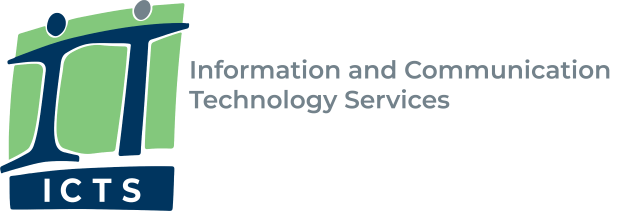| Effective date of the guideline: |
10 July 2015 |
|
Last updated: |
10 July 2015 |
|
Guideline owner: |
Enterprise Infrastructure Services (EIS) |
Table of contents
- Eligibility for use of UCT WordPress blogs
- General
- Updates of application software or configuration
- Security
Background
WordPress, the content management tool used for blogs at UCT, provides a framework where content can be easily uploaded and edited without the necessity for web coding or a knowledge of HTML. The Microsoft Word-like interface provides a familiar toolbar for adding text, links and images. This environment makes use of a standard template that resembles UCT's corporate look and feel, but still allows for personalised banners and imagery. The system can easily be upgraded without the blogs being impacted.
This environment caters specifically for blogging at UCT. It can be used by staff and students with valid staff or student numbers. For websites at UCT, the Drupal environment should be used and a process is underway to migrate all UCT websites to this platform. UCT will not be migrating old blogs.
Acronyms and Terms
| Acronym |
Explanation |
|
ICTS |
Information and Communication Technology Services |
|
UCT |
University of Cape Town |
|
EIS |
Enterprise Infrastructure Services |
|
CMS |
Content Management System |
|
CMD |
Communications and Marketing Department |
|
Blog owner and Administrator |
The person responsible for getting approval and managing the Blog. |
Applicable to
UCT faculties, departments, staff and students and associated units as determined by the Registrar.
Exceptions
Entities outside of the UCT community and personal use.
Guideline summary
This guideline covers the following aspects:
- Eligibility for use of UCT WordPress blogs
- General
- Updates of application software or configuration
- Security
Guideline details
1. Eligibility for use of UCT WordPress blogs
- Blogs for official UCT business or associated units as determined by the Registrar.
- An organisational entity of UCT including, but not limited to, a faculty, department, school, centre, division, group, unit, office, or service.
- Student groups
- Postgraduate students who have requested a blog for their research, work or studies at UCT.
- UCT's Communications and Marketing Department (CMD) and ICTS need to approve the blog’s domain name according to the domain name policy.
- The request for a blog must be submitted either by a permanent staff member or student, who will be the owner of the Blog.
2. General
Hosting
- The WordPress environment provides a hosting platform that allows for the submission of content limited to text and HTML, URLs, images and video through a web interface.
- The server will not cater for any other CMS platforms or items that require installation and configuration or that impose on the default server structure.
Design
- At UCT, this environment is strictly for blogging. This is not a replacement for Drupal faculty websites. A default template is applied to the entire hosting environment and may not be changed for individual sites other than via the provided methods in WordPress.
Development
- Configuration changes to the web hosting server or MYSQL server will not be allowed.
- Standard WordPress plug-ins are provided. No additional plug-ins will be permitted unless they are beneficial to the whole Blog environment as determined by ICTS.
- The webserver will only provide HTTP and HTTPS accessibility.
Regulations and conditions
- Bulk mailing from the server will not be allowed. (Newsgroups, bulk advertising etc.)
- A valid/current Blog owner or active administrator must be assigned to a site.
- Blog owners need to ensure their Blog content remains functional and current.
- Blog with old or inappropriate content will be removed should the site owner not respond to requests to update their site.
- Only permanent UCT staff and students will have access to edit Blog content if they are site owners or collaborators who have been given access to the site by the Blog owner. These staff members / Students can provide temporary access to others to assist with the management of the Blog content.
- Only one Blog owner is allowed per site and will remain the primary contact for that site.
- Blog owners must inform ICTS when ownership is transferred.
- Only Blog owners may request a backup or restore of a particular blog
3. Updates of application software or configuration
- Blog owners will be notified of upgrades to the hosting platform.
- Blog owners will be responsible for testing Blog functionality on completion of an upgrade of the hosting platform.
- Added plug-ins will be upgraded to later versions at the time of upgrading the hosting platform if deemed necessary by ICTS.
4. Security
- Configuration changes and updates to increase the platform's security will be done by ICTS.
- Should any pages or databases pose a security risk to the platform, the items will be restricted to protect the security of the hosting environment. The Blog owner will be informed and asked to address the issue.
Features
WordPress has many features which enhance its usability and the quality of the blogs you can produce.
Some of these are built-in features and others can be added as plug-ins. They include:
-
Built-in features:
- Breadcrumbs for navigation
- The ability to import content from an RSS feed
- An events calendar
- Two new custom themes based on TwentyFourteen and TwentyFifteen from WordPress
- An Instagram feed
- Active Directory Integration
- Advanced Access Manager
-
Plug-ins:
- A “dynamic feature” animated slider (Meta Slider)
- A form builder (Ninja Forms)
- Reusable custom tables (TablePress)
